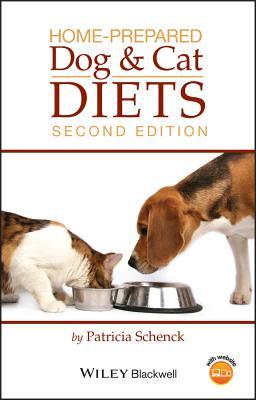Diets are now listed together in a cookbook style for ease of use, and recipes are adjustable for any size dog or cat, allowing exact nutritional values to be calculated. Nutrient content for protein, fat, carbohydrate, and fiber have been provided for every diet, along with the nutrient density. A companion website features downloadable spreadsheets with complete nutritional breakdowns for each recipe.
Useful for both veterinarians and pet owners alike, Home-Prepared Dog and Cat Diets, Second Edition is a unique handbook written by an expert in the field providing an introduction to the nutritional management of dogs and cats with easy-to-use recipes for home-prepared diets.
Clarification: Calcium Carbonate
We've had some questions from readers regarding the use of the term "calcium carbonate," which is listed as an ingredient in a number of the diets found in this book, and therefore wanted to clarify what is meant by this ingredient. Baking soda comes in two forms: sodium bicarbonate and calcium carbonate. The sodium bicarbonate version is widely available as "baking soda" and is commonly used in baking, but none of the recipes in this book use it as an ingredient. The calcium carbonate version of baking soda is sometimes sold as "baking soda substitute" and sometimes referred to as simply "baking soda."
To avoid confusing sodium bicarbonate and calcium carbonate, any time the calcium carbonate type of baking soda has been used in a diet in this book, the ingredient includes the specific term "calcium carbonate." There are several manufacturers of calcium carbonate baking soda; for example, Amazon carries the Ener-G Foods product baking soda substitute. Calcium carbonate can also be sold for garden use, which is non-food-grade, so to avoid the use of the garden product in foods, the term "baking soda" was used in this book instead to indicate that readers should be sure to select a food-appropriate ingredient.
